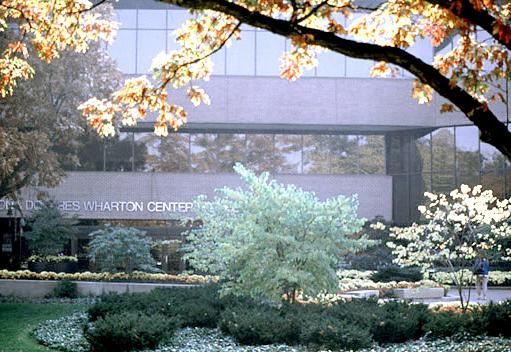
History
of Ingham County
An
1829 act of the Territorial Legislature created Ingham County. Called a "cabinet
county," it bears the name of Samuel D. Ingham, who was Secretary of the Treasury
under President Jackson at the time.
The
area was a forest wilderness filled with wide tamarack marshes, and was sparsely
populated. Because of its dense forest, early Michigan settlers tended to avoid Ingham
County and to settle its perimeters. The first piece of land purchased and deed recorded
was in the Okemos area in 1832. Settlers, moving into the county from the east and south,
followed old Indian trails from Jackson, the Dexter-Stockbridge area and Pontiac. By 1842,
all of the present townships of Ingham County were organized.
 The State Legislature met in Detroit in
1846 to choose a site for a capitol for the new State
of Michigan. Lawmakers presented bills proposing many localities, each, of course
favoring his own district as a site. Lansing township was a surprising compromise made by
the legislators, for the nearest railroad was 40 miles away and there was only a few
trails to the site, which was still a wilderness. The deciding factors for Ingham County
were its central location and the offer by James Seymour of a large tract of land at the
bend of the Grand River.
The State Legislature met in Detroit in
1846 to choose a site for a capitol for the new State
of Michigan. Lawmakers presented bills proposing many localities, each, of course
favoring his own district as a site. Lansing township was a surprising compromise made by
the legislators, for the nearest railroad was 40 miles away and there was only a few
trails to the site, which was still a wilderness. The deciding factors for Ingham County
were its central location and the offer by James Seymour of a large tract of land at the
bend of the Grand River.
The Capital City was soon carved out of the forest.
Travel was facilitated by the construction of a plank road from Detroit to Lansing. This
toll road, financed with federal funds, was completed in 1860 and gave force to the large
number of new Michigan settlers that poured into the region. The seat of Ingham County
government was established in Mason, which is centrally located, fulfilling the
requirements of the time that the county seat be no more than a day's travel from any
location in the county.
 The
Lansing area grew gradually over the years, with
industry and the educational facilities of a land-grant
college contributing to its expansion. The remainder of the county developed into an
agricultural area, much of which remains at the present time. The spread of suburban
living has recently cut somewhat into these rural areas.
The
Lansing area grew gradually over the years, with
industry and the educational facilities of a land-grant
college contributing to its expansion. The remainder of the county developed into an
agricultural area, much of which remains at the present time. The spread of suburban
living has recently cut somewhat into these rural areas.
Structure of Ingham
County Government
Ingham County is governed by a 14-member Board of
Commissioners elected on a partisan basis for terms of two years from single-member
districts that are approximately equal in population. The Board annually elects from its
ranks a Chairperson, Chairperson Pro-Tem and Vice-Chairperson Pro Tem by majority vote.
The administration of the County, other than as delegated to elected officials, is guided
by the County Controller who is appointed by a two-thirds vote of the Board of
Commissioners and serves at its pleasure. Primary functions of the Board include
determination of the type and level of County services, adoption of the County budget,
equalization of County property values, legislative oversight of County services and the
appointment of various boards, commissions and County officials. Judges of the 30th
Judicial Circuit and the Probate Court are elected at large for six year terms, while the
Judges of the 55th District Court are elected from the area of the County outside of
Lansing and East Lansing. (Lansing and East Lansing both have their own district courts.)
Operation of the court system is under the auspices of the Michigan Supreme Court and the
respective presiding Judges, while the County government primarily provides financial
support.
Administration
of the County is divided by the Michigan Constitution among various statutory County
officials, including the County Treasurer, County Clerk, Register of Deeds, Prosecuting
Attorney, Drain Commissioner and Sheriff, who are elected at large for four year terms.
The County Treasurer is the custodian of funds to local communities and school districts,
and performs other duties concerned with interrelated fiscal affairs of County departments
and agencies. The duties of the County Clerk include keeping and maintaining records of
births, deaths, marriages and discharge of military personnel and serving as Clerk of the
Board of Commissioners. The duties of the Register of Deeds include the recording or
deeds, mortgages, surveys, plats, notices of liens and bills of sales. The Prosecuting
Attorney prosecutes violations of state criminal law within the County and may represent
the County in appropriate Courts. The County Drain Commissioner administers the location,
construction and maintenance of drains in the County. The Sheriff's duties involve the
charge and custody of the County Jail, the serving of processes, and law enforcement in
unincorporated areas.
 In addition, the Board of Commissioners appoints several
County officials, including the Controller, Health Officer, Medical Examiner, Equalization
Director and Animal Control Director with responsibilities as defined by statute, County
ordinance or resolution. The Controller's responsibilities include direction of central
administrative functions of the County government and acting as a liaison on behalf of the
Board of Commissioners between County offices, appointed officials and the general public.
The Health Officer directs the operation of the County Health Department in accordance
with Board of Commissioner's directions and as authorized by State law. The Medical
Examiner serves as the Medical Director of the Health Department as well as performing the
statutory duties of Medical Examiner. The Equalization Director oversees the equalization
process of the County as prescribed by law. The Animal Control Director enforces
appropriate State law and the Ingham County Animal Control Ordinance with respect to
insuring the public safety animal related matters.
In addition, the Board of Commissioners appoints several
County officials, including the Controller, Health Officer, Medical Examiner, Equalization
Director and Animal Control Director with responsibilities as defined by statute, County
ordinance or resolution. The Controller's responsibilities include direction of central
administrative functions of the County government and acting as a liaison on behalf of the
Board of Commissioners between County offices, appointed officials and the general public.
The Health Officer directs the operation of the County Health Department in accordance
with Board of Commissioner's directions and as authorized by State law. The Medical
Examiner serves as the Medical Director of the Health Department as well as performing the
statutory duties of Medical Examiner. The Equalization Director oversees the equalization
process of the County as prescribed by law. The Animal Control Director enforces
appropriate State law and the Ingham County Animal Control Ordinance with respect to
insuring the public safety animal related matters.
The Board of Commissioners also appoints various boards
and commissions to oversee specific County services and to advise the Board on certain
matters of interest. Appointments to boards overseeing specific County functions include
the Family Independence Agency Board, the County Library Board, the Board of County Road
Commissioners, Parks Board, and the Housing Commission. Appointments to advisory
committees include the Women's Commission, the Equal Opportunity Committee, and the Board
of Health. Finally, the Board also appoints representatives to regional bodies overseeing
programs in the areas of airport operations, aging, manpower training, planning and
substance abuse.